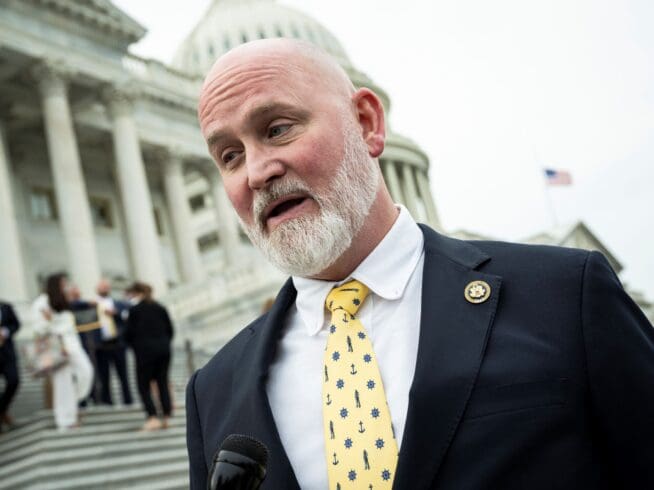New study finds people stocking up on abortion medication before they might need it
Data found that a month before Roe v. Wade was overturned, requests for the medication went from 25 per day to 118 per day.

A new study published in the journal JAMA Internal Medicine this month says that people in the United States who can become pregnant are preemptively ordering abortion medication, particularly in states where the procedure is more challenging to access.
Researchers focused on a practice known as advance provision, that is, people purchasing mifepristone and misoprostol, the two drugs used in over half the abortions in the nation, to have on hand in case they become pregnant.
The study examined data from Aid Access, a nonprofit organization based in the Netherlands that prescribes and mails abortion medication to people in the U.S.
The study found that between May 2022, when a draft of the U.S. Supreme Court decision in Dobbs v. Jackson Women’s Health Organization was leaked to the public, and the release of the official ruling seven weeks later on June 24, 2022, requests for advance provision increased nearly tenfold to 247 per day.
The number of requests per day fell to about 89 per day after the official ruling was released but rose again to 172 in April 2023, when a federal judge in Texas suspended the Food and Drug Administration’s 20-year-old approval of mifepristone, setting off a series of legal skirmishes over the drug’s availability. In December 2023, the U.S. Supreme Court announced it would review a decision by a federal appeals court that could limit access to mifepristone.
The New York Times reported that there were more requests for abortion medication in states with existing abortion bans and in states where bans were likely to go into effect.
“People were obviously paying attention and seeing the threat of abortion access either going away or being reduced where they were and thinking, ‘I need to get prepared for that,’” Dr. Abigail Aiken, a public affairs professor at the University of Texas at Austin and a co-author of the study, told the Times.
The largest number of people requesting advance provision were white, living in cities, were between 20 and 29 years old, not pregnant, and did not have children.
Advance provision requesters are required to pay the full $110 price of the pills, Aiken told the Times, while those who were already pregnant but in need of financial support are given the medicine at a reduced price or at no cost at all.
According to Plan C, a website that advises those seeking abortion medication by mail, mifepristone has a 5-year shelf life, and misoprostol has a 2-year shelf life.
“Every time we’re seeing uncertainty, every time we’re seeing potential legislation coming, that’s when people seem to be reacting most. … They see the writing on the wall — and that seems to be the biggest motivator,” Aiken told Mother Jones.
In an interview with the Guardian in February 2023, Aid Access founder Dr. Rebecca Gomperts said people should stock up.
“If you’re in a war zone, and the war is coming, you also make sure you have enough food in your house. This is how it feels. It really is a war. It’s a war on women,” she said




